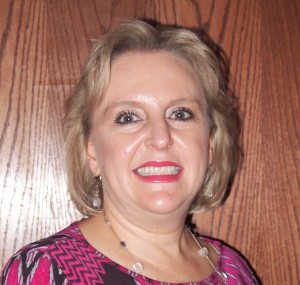Meeting Mentor Magazine
ConferenceDirect Solutions: Lisa S. Davis
Surmounting Obstacles to Effective Negotiation
 In today’s seller’s market, it’s tough enough to negotiate a meeting’s three basic requirements: space, dates, and rates. It’s even harder when a meeting is 180 degrees from cookie-cutter, and that’s where Lisa S. Davis, director of global accounts at ConferenceDirect, comes in.
In today’s seller’s market, it’s tough enough to negotiate a meeting’s three basic requirements: space, dates, and rates. It’s even harder when a meeting is 180 degrees from cookie-cutter, and that’s where Lisa S. Davis, director of global accounts at ConferenceDirect, comes in.
She aptly described a meeting put on by a regional auto distributorship client as “a hard piece of business to book.” It draws 400 attendees, but is very space-intensive (vehicles are brought in) and utilizes an extensive production set-up for much longer than its one-half-day length. While the client prefers a hotel ballroom, the nominal guestroom block makes this business particularly difficult to negotiate. As a result, its next meeting will take place in the ballroom of a convention center.
Similarly, the requirement to keep room rates under a $200 threshold for the annual meeting of another client, an energy sector association, severely limits its options in this negotiating climate. So Davis encouraged the group to widen its choices and consider U.S. cities beyond those regularly visited along the Texas Gulf of Mexico. “It’s important to open new markets for people to walk the show floor,” she noted.
Example: A $205 room rate presented a huge obstacle to overcome in booking Vancouver for this client’s 2016 meeting. Yet this represented an important step for an association that is “international” in scope to select the first non-U.S. annual meeting destination. While exhibitors, who underwrite so much of every conference, expressed concerns about transporting their materials, Canada has made it easier for conventions to meet there by easing the customs process.
Helping her clients surmount these obstacles is Davis’s number-one task. In this case, the association’s willingness to jump the rate threshold became a turning point, enabling the group to reconsider and then confirm New Orleans — a city where they have traditionally drawn high attendance — as the meeting’s 2017 location. To make this option even more attractive, Davis negotiated a low percentage cap on annual rate increases and established a maximum rate cap, along with a review of actual market rates closer in.
Her ability to negotiate successfully for her client comes from a deep well of mutual trust that’s taken time to form. And it’s gone far to help her when managers and strategies change, as they did with the energy association.
The new meetings manager represented a different generation, one less intent on traditional process and less interested in formal bids at the start of the site selection process. “She can knock out a convention center site visit in an hour, instead of several hours, and see a city’s ability to meet the group’s convention needs in slightly more than a day,” Davis explained. “She then determines when the time will be right to secure the city’s bid so she can guide it through committee review and board decision-making. Once a city is selected, she delegates details effectively to her staff.”
That approach was perfect for the association, which had wanted to make this manager’s position more strategic, and it fit right into the way Davis works: “I interpret what she needs back to supplier partners.”
This mutual trust got a boost in an unusual way a few years ago. The association decided to move to another intermediary, but when the negotiations were not working out, the client turned back to Davis for help at a critical point — right before housing opened for the nearly 7,000-person conference. “I think they were really impressed with how I stepped up and didn’t miss a beat,” she noted.
Indeed, Davis’s deep knowledge of the request-for-proposal process and her client’s decision factors has cemented their partnership; she is trusted to manage much of the contracting. Example: In direct response to an arduous internal approval process requiring signatures from the conference planner, manager, director and controller — before the executive director’s final authorization — she developed a standard hotel contract. It combines association-specific requirements with ConferenceDirect’s standard contract as a base. After drafting a contract with a hotel, Davis sends it to the association with a two-page overview of costs and liabilities, and how the hotel addresses each of the client’s clauses. “We’ve gotten the time to final signature down from weeks to five business days,” she said. Hotel partners couldn’t be more pleased. — Maxine Golding
MORE ARTICLES FROM THIS ISSUE:
Design by: Loewy Design